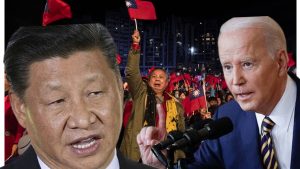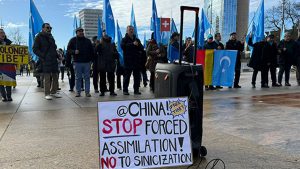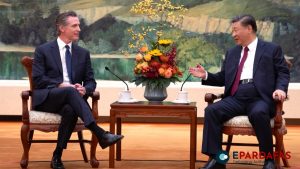
G7 Condemns China and Issues Warning: ‘Change Course or Face Sanctions’

The recent G7 summit in Italy marked a pivotal moment in international relations, as leaders of the world’s most powerful democracies convened amidst heightened concerns over global stability, particularly centered on the aggressive actions of Russia and China.
From June 13 to 15, the G7 leaders met against the scenic backdrop of Apulia, Italy, marking the 50th anniversary of the Group of Seven nations. However, the atmosphere was far from celebratory. Key discussions and the resulting joint statement underscored deep apprehensions regarding China’s and Russia’s geopolitical strategies. Of utmost concern was the emerging Beijing-Moscow alliance, perceived as a central destabilizing force in the international arena.
The G7’s joint statement explicitly condemned China’s role in supporting Russia’s military activities, signaling potential future sanctions targeting Chinese entities involved in aiding Russia’s defense sector. This move represents a significant shift, with previous sanctions primarily led by the United States now potentially gaining broader support from European allies and Japan.
Historically, the G7 has sought to engage China diplomatically on global issues like climate change and health crises. However, recent events, including reports of Chinese discouragement of international support for Ukraine, have strained this relationship. There are growing fears that Beijing’s strategic interests may align with Moscow’s aggressive territorial ambitions, notably in Ukraine and potentially Taiwan.

Beyond geopolitical tensions, the G7 reiterated its commitment to democratic principles, human rights, and international norms. The statement highlighted concerns over China’s actions in Taiwan, the South China Sea, and human rights abuses in Xinjiang, Tibet, and Hong Kong. Notably absent were specific references to abuses against mainland Chinese democracy advocates or Falun Gong practitioners, reflecting ongoing diplomatic sensitivities.
Economically, the G7 also took aim at China’s state-driven economic model, criticizing its subsidies and export policies as distortive to global trade norms. However, the statement fell short of explicitly advocating for free-market principles, marking a departure from previous staunch support for “market democracy.”
China’s state media responded critically to the G7’s stance, accusing the group of being influenced by U.S. interests and emphasizing issues like environmental crises and conflicts in Gaza instead. Despite this rhetoric, the G7 remains resolute in its pivot towards addressing China’s growing influence and its implications for international stability.
Looking ahead, the prospect of coordinated G7 sanctions against China presents a formidable challenge to Beijing’s leadership, potentially impacting its domestic policies and global economic activities. However, whether such measures will alter China’s assertive geopolitical course remains uncertain, as the Chinese Communist Party shows no signs of backing down from its current policies.
In conclusion, the G7 summit marked a critical juncture in global diplomacy, highlighting escalating concerns over China’s role in global affairs and its implications for democratic values and international security. The coming months will likely see intensified efforts to align policies among G7 members and their allies, shaping the future landscape of international relations amidst evolving geopolitical tensions.
- Recording Statements of Defendants, Including RSP President Rabi Lamichhane, Begins in Kaski Court
- China Warns U.S. Over Taiwan Military Aid, Accuses Washington of ‘Playing with Fire’
- 101st Birth Anniversary of Nepali Congress Founding Leader Krishna Prasad Bhattarai Commemorated
- Nepal’s Exports Rise by 16.5% in Five Months Amid Trade Deficit












Comments